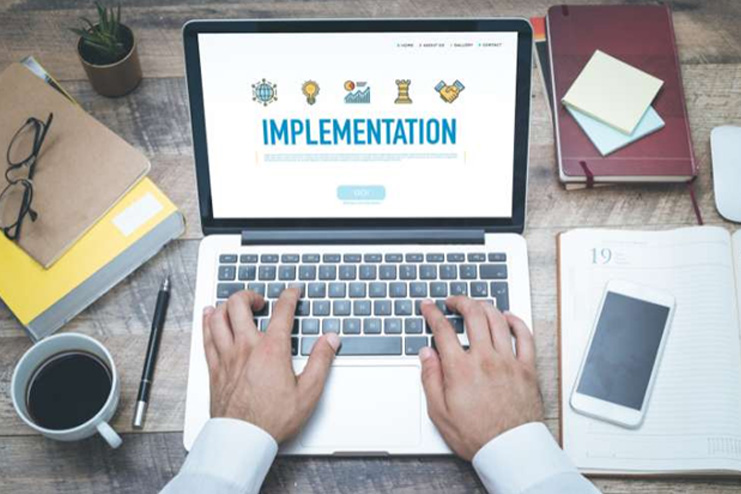Affiliate Disclaimer
Some links in this article are affiliate links. We may earn a small commission if you make a purchase through these links, at no extra cost to you. We only recommend products we find useful to our readersThe idea of a “digital detox” has become popular in today’s fast-paced digital world as a vital tactic to achieve a healthy balance between technology and family well-being. Taking breaks from digital gadgets is crucial as our lives become increasingly entwined with screens. Overuse of screens can have a detrimental impact on emotional and physical well-being of the members of a family at all ages.
This introduction clarifies the urgent need for a thoughtful approach to technology use. It stresses the importance of a digital detox for a better, more connected lifestyle. It asks families to acknowledge the possible adverse effects of excessive screen time on their general health.
Transforming Screen Habits: Setting the Stage for a Healthier Family Lifestyle
1. Understanding Digital Detox

A purposeful and brief break from digital gadgets and internet activities is known as a “digital detox,” which aims to decrease screen time and promote a positive connection with technology. This technique entails purposefully turning off computers, smartphones, and other electronic devices to free up time for deeper, offline interactions. Beyond just cutting back on screen time, a digital detox is an effective way to improve general well-being and reconnect with the present moment.
The purpose of a digital detox is to give us time to be fully present in the moment without technology’s interruption. It’s an opportunity to make personal connections with people again instead of interacting with them through a screen, decompress, and take a break from the constant closeness.
By adopting a digital detox, families can foster authentic relationships, build family ties, and encourage quality time spent together. By taking a deliberate break from screens, families can spend more time together, bonding over shared interests and activities.
Overexposure to screens can affect family health in a variety of ways. Long-term screen usage has been physically associated with sedentary lifestyles, which can lead to problems including obesity and irregular sleep patterns. Mentally, both adults and children may experience more tension, anxiety, and shorter attention spans as a result of continual digital stimulus.
Related Article: Unplug and Recharge: The Benefits of of a Digital Detox for Mental Well-Being
2. Assessing Current Habits

When families are navigating the digital landscape, they must take a moment to pause and evaluate the behaviors they currently have about screen time. Families can obtain valuable insights into their usage patterns and discover areas that may require adjustment if they take a thoughtful approach. Not only does this process of introspection require analyzing the total amount of time spent in front of a screen, but it also involves analyzing the specific activities and how they influence day-to-day living.
One of the most essential steps in this evaluation is identifying excessive use patterns. To accomplish this, it is necessary to honestly assess the amount of time spent on digital devices and the potential effects on both physical and mental well-being. This self-awareness creates the foundation for a successful digital detox by facilitating the cultivation of a deliberate and attentive approach to the use of technology within the context of the family dynamic.
3. Implementing Healthy Screen Habits

To start a successful digital detox, consider establishing clear and reasonable screen time limitations for every family member. Establishing tech-free zones within the family, such as during meals or in bedrooms, creates areas designated explicitly for meaningful connections.
Parents and guardians can set an excellent example for their children by modeling healthy screen habits and emphasizing the significance of disconnecting from technology to participate in offline activities. Involving every family member in the process is equally essential; have conversations about the advantages of a digital detox and work together to develop guidelines that consider each individual’s preferences and requirements.
By embracing these practical strategies, families can proactively create an environment that encourages a healthier balance between the time spent in front of screens and time spent interacting with people in the real world.
4. Exploring Alternative Activities

Investigating substitute activities becomes apparent as a game-changing tactic to cut down on screen time and improve family well-being in the pursuit of a balanced lifestyle. Families should be encouraged to enjoy outdoor activities, such as weekend hikes and nature walks, as these can promote physical exercise and a connection with the environment. Partaking in common interests, such as cooking, sewing, or music, is fun for family members to work together and express themselves.
Another way to cut down on screen time, ignite the imagination, and provide a sense of achievement is through creative projects. These activities, which range from family art projects to do-it-yourself projects, provide entertaining diversion and foster creativity and cognitive growth.
Draw attention to the advantages of these offline activities, stressing their beneficial effects on family bonding and cerebral stimulation. In addition to improving individual well-being, these non-traditional pastimes fortify family bonds, fostering enduring memories and shared experiences beyond the screen. Families can experience the delight of spending time together without screens by investigating these options, promoting a healthier and more unified way of living.
5. Creating Family Screen Time Rules

Establishing screen time guidelines unique to your family is crucial to fostering a very positive relationship with technology in the digital age. Stress how important it is to modify rules to suit the family’s various age groups and requirements. Consider children’s developmental phases and set age-appropriate boundaries that encourage responsible and safe use of technology.
Family members can participate in the process by collectively negotiating screen time limitations and promoting accountability and ownership. To meet individual preferences and find a balance that supports the family’s overall objectives, promote open communication. Setting up designated tech-free times, including before bed or during meals, helps to emphasize the value of in-person relationships.
Families may create a digital environment that fosters individual development and collective well-being by working together to establish and enforce family screen time guidelines. These rules provide a road map for responsible tech use, encouraging a thoughtful and balanced approach to screen time within the family context.
6. Nurturing Family Connections

An opportunity to prioritize meaningful encounters and strengthen the links that bind a family together is provided by a digital detox, which plays a vital part in the process of developing family connections. By removing themselves from their electronic devices, family members can have meaningful talks, which in turn promotes open communication and comprehension. With this deliberate break, you will have the opportunity to create shared experiences without being distracted, thereby constructing memories beyond digital technology.
Supporting activities promoting teamwork and togetherness is essential to create stronger connections. Some examples of such activities are family game evenings, outdoor trips, and cooking together. To develop an air wherein each relative feels appreciated and esteemed, underscoring the need for undivided attention and being available at the time is fundamental.
Families can rediscover the delight of spending quality time together, which helps to strengthen the foundation of their relationships when there are no digital distractions surrounding them. In the context of the family unit, a digital detox can catalyze increased communication, deeper connections, and overall enhanced well-being.
Conclusion
Adopting good screen habits as a family results in many benefits, such as greater well-being, improved communication, and stronger relationships within the family.
-
Dec 2023Written by Ankita
-
Nov 2024Edited by Ankita
References
- https://www.webmd.com/balance/what-is-digital-detox
- https://www.verywellmind.com/why-and-how-to-do-a-digital-detox-4771321
- https://www.lifespan.org/lifespan-living/what-digital-detox-and-do-you-need-one
- https://www.ncbi.nlm.nih.gov/pmc/articles/PMC6757492
- https://www.webwise.ie/parents/screen-time-advice-for-parents
- https://www.canr.msu.edu/news/less_screen_time_more_physical_activity_time
- https://www.everydayhealth.com/emotional-health/how-to-do-a-digital-detox-without-unplugging-completely
- https://www.verizon.com/about/parenting/digital-detox-zone
- https://www.linkedin.com/pulse/tips-reducing-screen-time-digital-detox-medyaan
- https://mommypoppins.com/anywhere-kids/best-kids-activities-no-screen-time
- https://www.natgeokids.com/uk/parents/screen-time-for-kids/
- https://gamequitters.com/best-screen-free-activities-by-age/
- https://yourteenmag.com/family-life/communication/100-things-teenagers-can-do-without-screens
- https://www.newportacademy.com/resources/restoring-families/digital-detox/
- https://medium.com/@rebeccausunday/digital-detox-journey-to-freedom-from-digital-chains-c77aa2441d15
- https://journals.sagepub.com/doi/10.1177/20501579211028647
In this Article
















